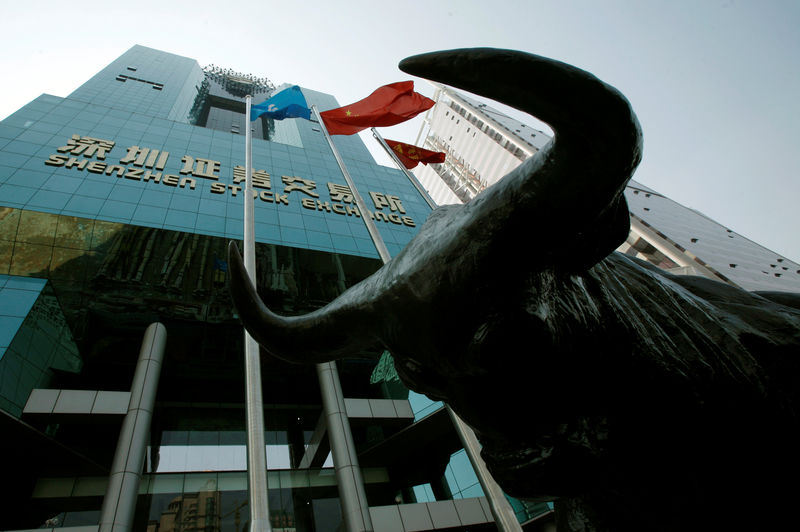By Saikat Chatterjee and Samuel Shen
HONG KONG/SHANGHAI (Reuters) - China's blue-chip index fell the most in six months on Monday the top securities regulator warned against "barbaric" share acquisitions, though small-caps outperformed as a Shenzhen-Hong Kong investment link went live.
The blue-chip CSI300 index <.CSI300> fell 1.7 percent to 3,469.41 points, registering the biggest loss since mid-June. The Shanghai Composite Index <.SSEC> lost 1.2 percent to 3,204.71.
Mainland blue-chips including Gree Electric <000651.SZ> and China Vanke Co Ltd <000002.SZ>, which had previously soared on share purchases by insurers, tumbled after Liu Shiyu, chairman of the China Securities Regulatory Commission (CSRC) on Saturday condemned "barbaric" leveraged buy-outs by certain asset managers.
"You launch leveraged buy-outs using illegitimate money, turning from a stranger to a barbarian at the gate, and ultimately becoming a robber in the industry. That is unacceptable," Liu said, referring to a recent series of acquisitions which he described as "somewhat abnormal".
"The comments are weighing on the broader markets and investors are wondering what would the impact be for companies' fund raising plans," said Andrew Sullivan, managing director of sales trading at Haitong International Securities Group in Hong Kong.
Liu's remarks also triggered criticism in the online investor community. An investor on xueqiu.com described Liu's comments as "ambiguous" and at odds with existing regulations.
"You need to have legal evidence. Who is the barbarian? How to define a robber? Does the government allow insurers to invest in stocks? How much leverage can they use?" the investor questioned.
Hong Kong stocks also retreated after the regulator's remarks, though selling was more muted.
The benchmark Hang Seng Index (HSI) fell 0.3 percent to a two-week low of 22,505.55 points, while the Hong Kong China Enterprises Index (HSCE) lost 0.7 percent to 9,711.80.
Broader market sentiment was also nervous as investors fear Italian Prime Minister Matteo Renzi's resignation on Sunday represented a fresh blow to the European Union.
SHENZHEN CONNECT GOES LIVE
The market weakness overshadowed the launch of a long-awaited stock market link between southern Chinese boomtown Shenzhen and neighbouring Hong Kong on Monday.
The investment scheme gives foreign investors access to some of the fastest growing private-owned companies in the world's second biggest economy.
Small caps have been the early beneficiaries of the stock connect scheme, with investors chasing them higher ahead of the official launch.
The Hong Kong small cap index (HSSI) firmed in morning trading, although the gauge ended down 0.4 percent amid profit-taking.
On the mainland, the tech-heavy ChiNext sub-index <.CHINEXTC> which is the equivalent of the Nasdaq (IXIC), ended the session flat, outperforming the broader market.
Market analysts said investors were looking to rotate into small-caps as the connect scheme fears up, rotating out of blue chips as the stern comments by the regulator and recent steps by China to limit outbound investment doused hopes for more M&A activity.
The launch of the Shenzhen-Hong Kong link was hobbled by the fallout from China's stock market crash last year and comes two years after authorities kicked off a Shanghai-Hong Kong link.
Early usage of the Shenzhen-Hong Kong connect was limited with about 1 percent of daily quotas on each leg used by mid-morning.

"If the Shanghai Connect was our baby step, Shenzhen Connect is our second step: now we can walk and then we can begin to run," said Charles Li, CEO of the Hong Kong Stock Exchanges and Clearing Limited. (HK:0388) said.